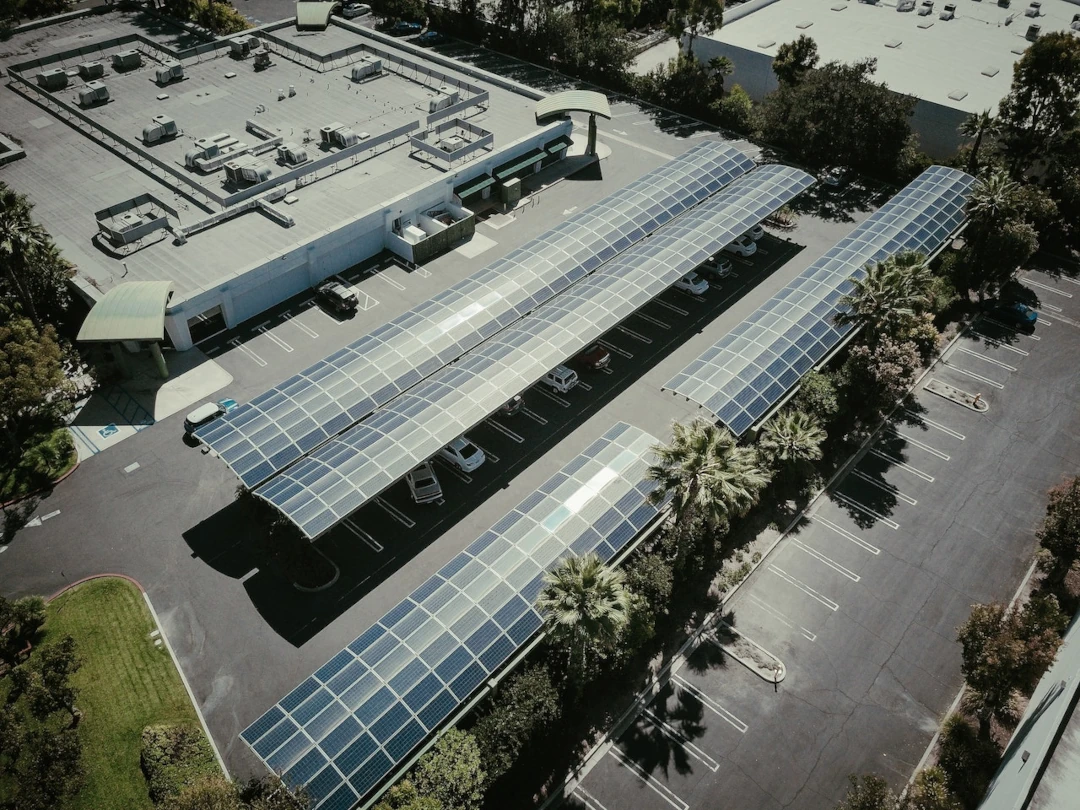
Game-Changing Tech Trends Shaping the Rental and Hospitality Sectors
The rental and hospitality sectors are undergoing transformative changes as technology continues to advance at an unprecedented pace. These changes are having a profound impact on the way businesses operate, how consumers experience services, and how the two interact. Understanding the latest tech trends is not just essential for staying competitive, but also for embracing the future and making informed business decisions.
Let’s look at the six game-changing tech trends people in rental and hospitality sectors should take super seriously.
Renewable Energy

In the rental and hotel industries, renewable energy is rapidly replacing its allure as a purely promotional benefit. Many firms are refocusing their efforts on incorporating green technologies due to rising customer demand for sustainable solutions and a rapid increase in worldwide awareness of climate change. Energy-efficient lighting and HVAC systems, solar panels on rooftops, wind turbines, geothermal cooling, and heating systems are becoming standard features.
This trend is in line with both financial prudence and eco-consciousness. Renewable energy is usually a cheaper option because initial setup expenses are typically offset by long-term energy savings and potential tax advantages. Additionally, sustainability initiatives enhance brand perception, enhancing the appeal of properties to prospective tenants or visitors who value environmental responsibility.
Cloud Computing
Perhaps one of the most revolutionary aspects of cloud computing is its role in facilitating remote work and decentralized operations. Property managers can now oversee multiple locations from anywhere in the world, with real-time access to data and automated alerts for immediate issues. For hotels, cloud-based customer relationship management (CRM) systems offer a unified platform to track guest preferences, history, and feedback, ensuring personalized service that enhances guest loyalty.
Cloud services also offer robust security features, including data encryption and multi-factor authentication, thereby assuring businesses and consumers alike that their data is in safe hands. As cloud computing continues to mature, its potential applications in the rental and hospitality sectors seem boundless, heralding a more streamlined, data-driven future.
Contactless Alternatives

The COVID-19 epidemic has substantially hastened the development of contactless technology, but its benefits go far beyond sanitary concerns. The customer experience has evolved to include keyless entrances, mobile check-ins, virtual tours, and digital payments. For instance, a lot of websites that display apartments for rent in Philadelphia PA, have 3D tour choices built into their business offers.
This technology is convenient and effective, facilitating transactions and lessening unnecessary burden on workers. Companies that use these technologies as a result not only adhere to the most recent health standards but also streamline their business processes, resulting in shorter response times and greater levels of client satisfaction.
Artificial Intelligence
Artificial intelligence (AI) is no longer a sci-fi idea; it is a current reality that has a big impact on several businesses, including hospitality and leasing. Property managers can analyze market trends, anticipate maintenance requirements, and improve pricing tactics thanks to advanced data analytics. AI-powered chatbots and virtual assistants are also proliferating and increasingly common, offering real-time, tailored customer assistance without human intervention, enhancing efficiency, and freeing up workers for other crucial activities.
AI is a perfect tool for gathering meaningful data that can be examined to understand customer behavior, preferences, and pain areas as well as automation. Businesses can make informed decisions and provide services that actually appeal to their target market thanks to this actionable knowledge.
New Social Media Advertising Platforms
The social media ecosystem is constantly evolving as a result of shifting customer behavior. While Facebook, Instagram, and Twitter continue to be important channels for advertising, niche networks like Clubhouse, TikTok, and others offer new ways to connect with younger, more diverse audiences. These new platforms are being used by the rental and hospitality industries to execute interactive, targeted campaigns that could include brief tours of rental properties, inside peeks at hotel operations, or client testimonials.
They allow two-way contact, which is different from traditional advertising mediums and makes it simpler to measure customer reactions and modify marketing strategy accordingly. In today's digital world, the ability to adapt quickly to changing consumer demands is becoming increasingly important for success.
Smart TVs and Additional Equipment

The widespread use of smart technology in the lodging and rental industries has completely changed how customers are served. Gone are the days of flat-screen TVs and complimentary Wi-Fi; this is not enough for modern guests. Consumers of today need a wide range of smart devices incorporated into their living areas. In addition to providing customized entertainment, smart TVs act as information hubs that can connect with portable electronic devices. They provide video conferencing and even local area guides for tourists.
Smart thermostats, voice-activated controls, and controlled lighting systems all add to the feeling of opulent convenience by making it easy for visitors to personalize their surroundings. Such technologies provide more effective property management, including remote monitoring and energy usage optimization, in addition to improving the client experience.
As we reveal these developments, it becomes evident that technology is fundamental to the rental and hospitality industries and that it significantly alters both business plans and customer expectations. Every technology advance, whether it involves AI or renewable energy, has an impact on everything from operational effectiveness to brand perception. Businesses in various areas must change and adapt in an increasingly linked world in order to not only survive but also thrive in a market where customers are more picky and knowledgeable. Technology integration opens up new possibilities for the lodging and rental industries rather than serving as an endpoint.
Loading comments...

